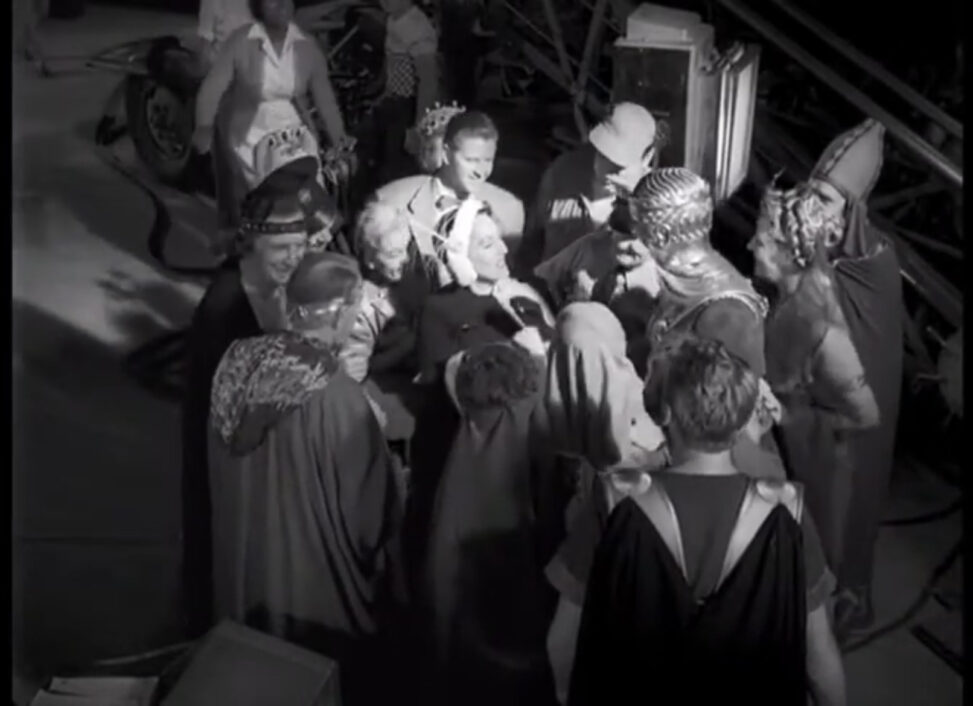The adoring staff is comprised of actors, stagehands, security, and other associated staff that flock and surround Norma Desmond. They are composed of multiple individuals but serve a purpose as a singular entity, they reinforce and affirm Norma’s belief that there is still a place for her in Hollywood, that she is still desired for as an actress, and that she can have and still has an impact on cinema. This scene with the adoring staff really sets a tipping point for the film and Norma’s character in particular as this firmly cements her delusions that she is still a great star and not someone past their prime sitting in a mansion waiting for phone calls that will never come. The adoring staff flock around and encircle her, conversing with her, reaching out to her, and adoring her, the typical messiah amongst their followers motif. Along with Max and Joe lying about how Norma was called by the studio for talents as an actor when in reality the studio only wanted to get in touch with Norma so they could use her car for a movie. The adoring staff essentially progressed Norma’s character to a point of no return, compounded with Max affirming her behaviors by writing fake fan letters out of love and Joe’s pseudo-editing of Norma’s script to exploit her for money and gifts, this scene with the adoring staff as they flock around Norma show their purpose as the final enablers of Norma’s delusion. They all look upto Nora, quite literally as she’s seated on the director’s chair and their adoration is also supplemented by a spotlight on Nora. They serve more as a monument to Norma’s decline than anything. Norma’s decline in regards to her character parallels Jack Muhall’s in Robert J. Read’s “Uncredited: Jack Mulhall and the decline of stardom” in the Small Parts, Small Players Dossier in which, “Mulhall’s performances were becoming awkward, disruptive and old-fashioned. He had once been a bold and effervescent performer with years of experience from Vaudeville and Broadway and ideally suitable for silent films, but now his performing style was becoming too exaggerated as his mannerism became overwrought with silent era histrionics” (117). Norma doesn’t want to change nor feels the need to change after interacting with the adoring staff as that interaction affirms her mind that she is relevant in the current landscape of cinema and not antiquity.
WORKS CITED
Read, Robert J. Uncredited: Jack Mulhall and the decline of stardom, Screen, Volume 52, Issue 1, Spring 2011, Pages 114–120, https://doi.org/10.1093/screen/hjr001
Wilder, Billy, director. Sunset Boulevard. Paramount Pictures, 1950.

Provide Feedback